‘Shakespeare Lives through Kenneth Branagh on Stage and Screen’ Exhibition
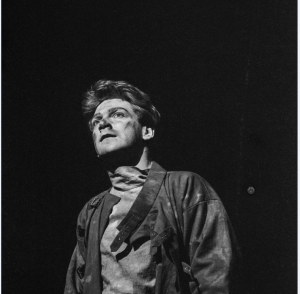
‘Shakespeare Lives through Kenneth Branagh on Stage and Screen’ is on display in the Queen’s Film Theatre (QFT) Foyer until 31 May 2016.
The exhibition features rarely seen artefacts from the Sir Kenneth Branagh Archive (MS 41) in Special Collections, the McClay Library at Queen’s University Belfast, which illustrate the actor-director’s remarkable Shakespearean career.
Introduction
Few have done more to celebrate and popularise the work of Shakespeare than actor and director Kenneth Branagh, born in Belfast in December 1960. From his early days at RADA Drama School to his present theatrical work, Branagh’s name has been closely intertwined with that of the Bard. His remarkable – and prolific – career has seen Branagh breathe new life into Shakespeare on stage and screen, and open up the work of the Bard to a global audience.
Henry V
Remarkably, Branagh made his debut with the Royal Shakespeare Company in 1984 as the leading man in Henry V, directed by Adrian Noble. Aged just 23, he was the youngest Henry V in the company’s history. Branagh undertook extensive research to help his development of the character, even securing a meeting with Prince Charles to better understand the responsibilities and isolation associated with royal life. Branagh won critical acclaim for his depiction of Henry V as a complex, doubting character and for his clarity in speaking the Shakespearean verse.
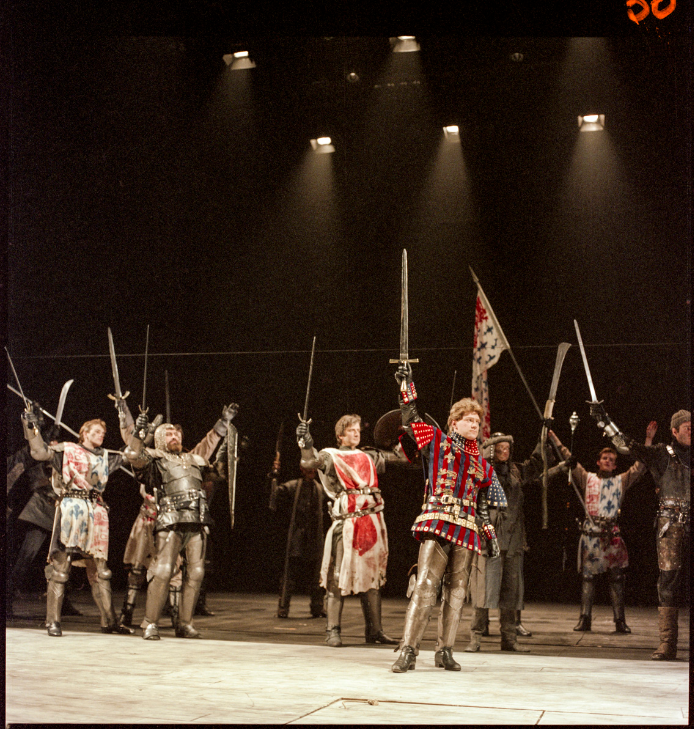
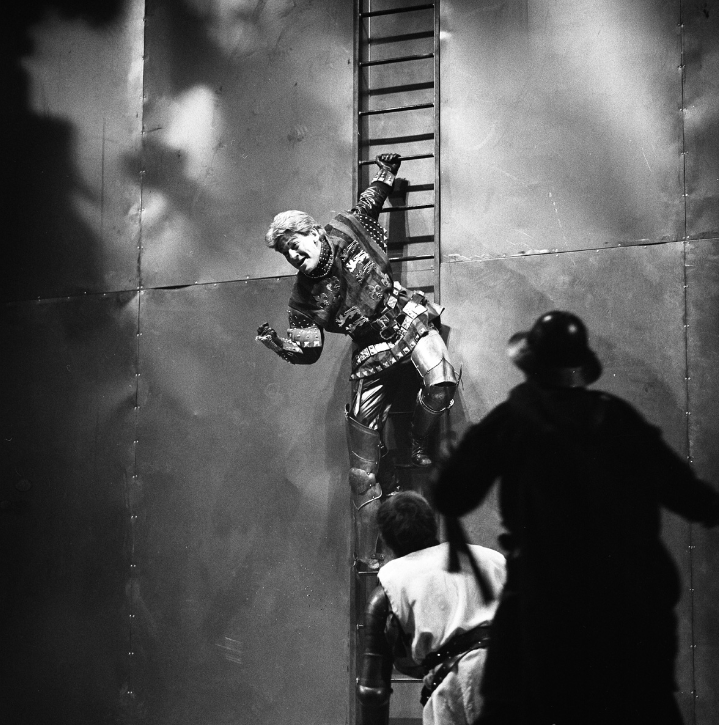
Following his depiction of the young king on stage, Branagh turned his sights to portraying Henry V on the big screen. Confident that Shakespeare’s historical play could be a truly popular film, Branagh determined to not only reprise his role but make his film directorial debut with Henry V. He wrote a script in early 1988, assembled a fine cast including Judi Dench and Derek Jacobi, secured £4.5 million and began filming in October 1988. Contrary to expectation, shooting of the film was finished in seven weeks and under budget. Henry V was released in autumn 1989.
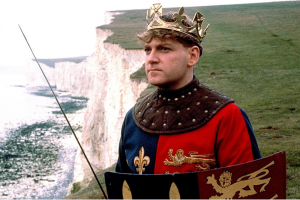
A desire to make the play accessible to a wide audience meant that importance was placed on naturalistic acting, clear delivery of the Shakespearean verse, a short running time and strong visual imagery. Box office figures were testimony to the film’s wide popularity. Henry V also won critical acclaim, particularly in the U.S. In fact, Branagh was nominated for both Best Actor and Best Director at the 1990 Academy Awards. Importantly, in earning success with Henry V, Branagh reinvigorated Shakespeare on screen and proved that the Bard’s work could be genuinely popular with a mass audience.
Shakespeare on Stage
In his opening season with the Royal Shakespeare Company, from 1984 to 1985, Branaghnot only notched up 139 public performances as the leading man in Henry V but had supporting roles in Love’s Labour’s Lost and Hamlet. He therefore showed his versatility in acting in a Shakespearean comedy, tragedy and history play. Branagh did not return to the company until 1992 when he performed as Hamlet, a part he revisited many times during his career. The production utilised a fuller version of the play – giving it a running time of over four hours – and transported the action to an Edwardian setting. The director was Adrian Noble who had also directed Branagh in Henry V. Amazingly, the entire six month run of the play was sold out before the first performance. Box office success was mirrored by the critical reception of the play; in particular, Branagh impressed with his clarity and naturalistic performance.
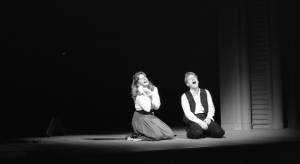
In April 1987, Branagh and fellow actor David Parfitt launched the Renaissance Theatre Company. The title reflected Branagh’s belief that the company represented a rebirth of sorts in British theatre. A fundamental principle underpinning Renaissance was that actors would be directed by fellow actors, promoting a sense of camaraderie and lack of hierarchy within the company. A further aim was to improve the reach and accessibility of Shakespeare. Alongside two contemporary plays, Twelfth Night opened the inaugural season of the company. The Shakespearean comedy, directed by Branagh, played over December 1987 at the Riverside Studios, London. The production – featuring a fine cast including Anton Lesser, Frances Barber and Richard Briers – earned rave reviews and established the credentials of the Renaissance Theatre Company.
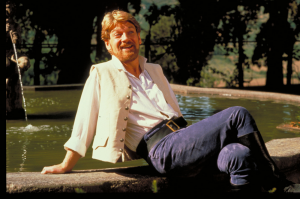
Branagh cemented the company’s relationship with Shakespeare – and his own association with the Bard – by following Twelfth Night with a touring Shakespeare season, beginning in March 1988, titled Renaissance Shakespeare on the Road. The season featured three Shakespeare plays, each directed by an esteemed actor making his or her directorial debut. Much Ado About Nothing, directed by Judi Dench, featured Branagh as Benedick. As You Like It was directed by Geraldine McEwan, with Branagh as the comedic Touchstone. Finally, Derek Jacobi directed Hamlet with Branagh in the leading role. The national reach of the touring season and the use of actors as directors fulfilled two of the key principles of the company. After a three month run at Birmingham Repertory Studio, the touring season travelled to venues across the U.K. and Ireland, beginning with the Grand Opera House in Branagh’s home town of Belfast. The tour also included a two week run in Denmark, at Kronborg Castle at Elsinore, the famous setting of Hamlet. By the time the tour reached London for a three month run at the Phoenix Theatre, hype about the Shakespeare season was at a peak. Branagh built upon this wave of popularity for Shakespeare by beginning filming Henry V just two days after the end of the nine month touring season.

In 1990 Branagh further expanded the reach of Shakespeare when the Renaissance Theatre Company brought King Lear and A Midsummer Night’s Dream on a world tour, starting in Los Angeles. In 1992, to celebrate the fifth anniversary of Renaissance, the company performed Coriolanus at the Chichester Festival. The play, directed by Tim Supple, featured Renaissance stalwarts including Judi Dench and Richard Briers, with Branagh in the title role. Significantly, Coriolanus was to be the company’s final theatre production.
Shakespeare on Screen
Working both in front of the camera and behind, Branagh has brought a wide range of Shakespeare’s plays to life on the big screen. Branagh followed up his film debut of Henry V with Shakespeare’s classic comedy Much Ado About Nothing.
With a budget of £5.6 million, Much Ado was shot over seven weeks in 1992 on location in Tuscany. Branagh not only directed and acted in the film but also adapted Shakespeare’s text into a screenplay, editing and re-ordering the play to reduce the running time and make the story as accessible as possible. He also assembled an international cast including Keanu Reeves and Denzel Washington that helped make Shakespeare globally marketable. As ever, the emphasis was on a naturalistic style of acting, with the American actors speaking in their own accents. Astonishingly, the film earned over $22.5 million at the American box office when it opened in 1993 and made over $30 million worldwide.
The 1995 screen version of Othello, directed by Oliver Parker, starred Laurence Fishburne as Othello, Irène Jacob as Desdemona, and Kenneth Branagh playing against type as Iago, a villainous character who plants seeds of jealousy in the mind of the title character. Branagh’s portrayal of Iago, which saw him speaking directly to the camera, earned rave reviews.
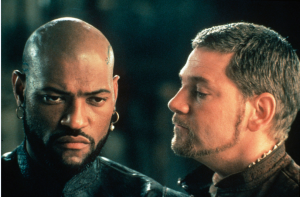
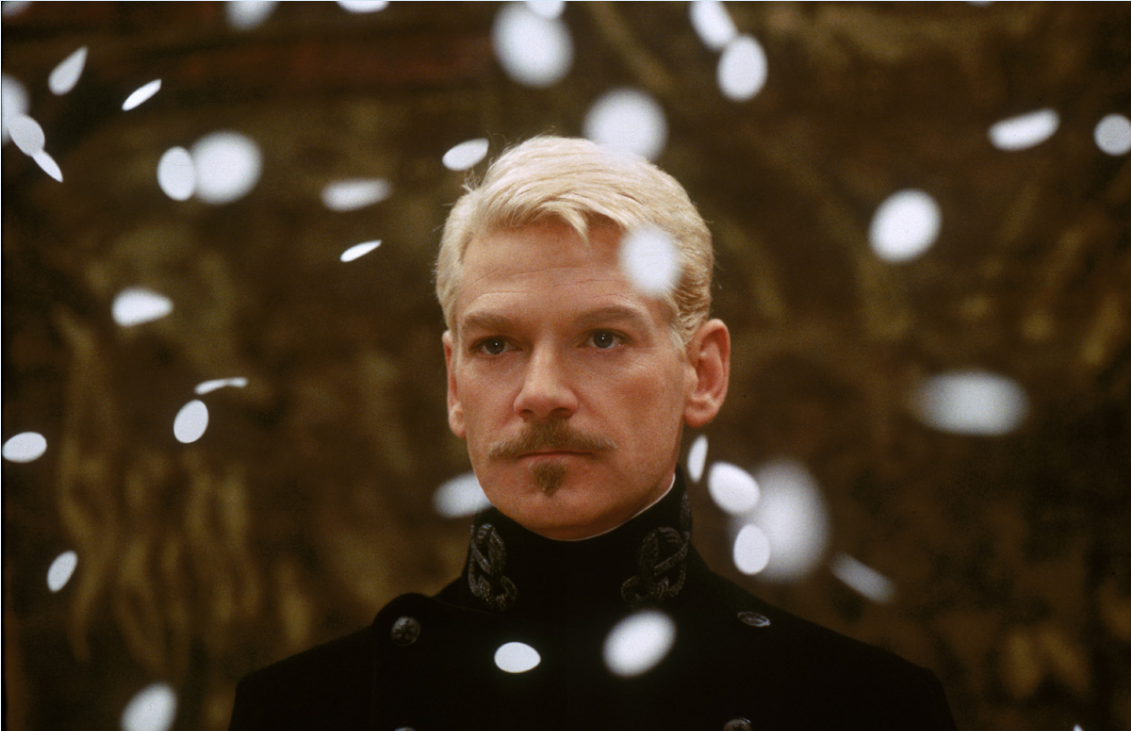
Branagh’s 1996 film of Hamlet was truly epic in scale. With a budget of $18 million, it featured large sumptuous sets, the use of Blenheim Palace for exterior shots and a starry cast from both sides of the Atlantic including Derek Jacobi, Julie Christie, Charlton Heston and Billy Crystal. Significantly, Branagh’s Hamlet was also the first film of the Shakespearean tragedy to utilise a full version of the play. With a running time of over four hours, the film was radical for both Shakespeare on screen and cinema in general. Branagh wrote the screenplay, directed and starred in the film, drawing on his previous theatrical performances of Hamlet to bring the title character to life on screen. The film won critical acclaim and earned Branagh a nomination for Best Adapted Screenplay at the 1997 Academy Awards.
For his fourth Shakespeare film as actor-director, Branagh brought one of Shakespeare’s comedic plays – Love’s Labour’s Lost – to life on the big screen in 2000. Branagh converted the play into a musical, incorporating classic songs into the screenplay, and set the action in the late 1930s. Cutting the original text down significantly and assembling a young, international cast including Alicia Silverstone, Branagh made one of Shakespeare’s more obscure plays accessible to a modern audience.
In a fundamental way, Branagh’s films led the charge in the revival of Shakespeare on screen. In fact, Henry V initiated a surge of Shakespeare films in the 1990s including Baz Luhrmann’s exuberantly filmed Romeo and Juliet of 1996.
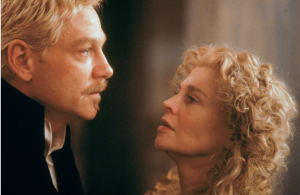
Conclusion
Alongside a wide range of film and television credits – from Harry Potter to Thor – Branagh continues to breathe new life into the work of the Bard. In 2006 Branagh brought Shakespeare’s comedy As You Like It to the big screen. And after an absence of almost a decade Branagh returned to the stage in 2002 to play the title role in Shakespeare’s historical play, Richard III. Directed by Michael Grandage, the play utilised a stripped down set within Sheffield Crucible Theatre. Harking back to the values of the Renaissance Theatre Company, emphasis was placed on lucid speaking of verse and the accessibility of the play. The production was a critical and commercial success, becoming the fastest selling show in the Crucible’s history. Today, Branagh’s rejuvenation of Shakespeare on stage continues apace. In fact, the four hundredth year after Shakespeare’s death aligns with the first season of the Kenneth Branagh Theatre Company, which features two Shakespeare plays. Knighted in 2012 for his services to drama and to the community in Northern Ireland, Kenneth Branagh continues to bring Shakespeare’s plays to life on stage and screen, breaking down perceived barriers to the Bard and making the work of Shakespeare accessible to a bigger audience than ever before.
Text by Rosaleen Hickey, curator of the exhibition ‘Shakespeare Lives through Kenneth Branagh on Stage and Screen’.

